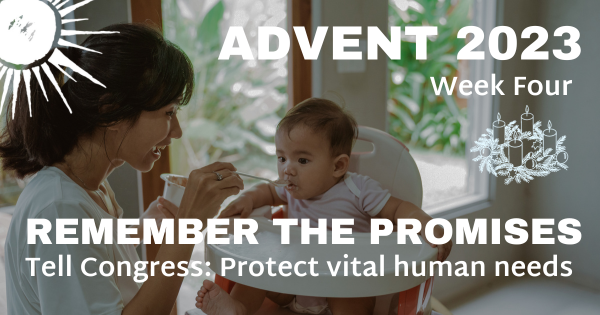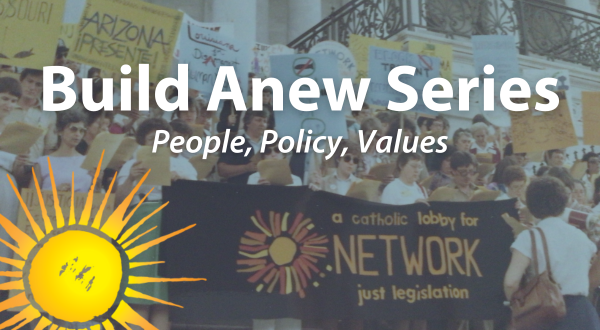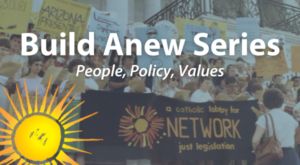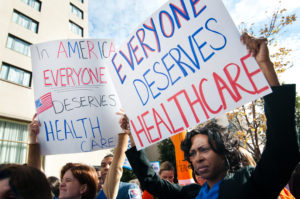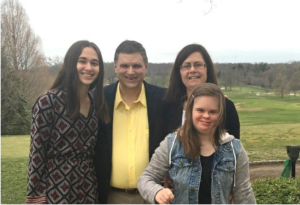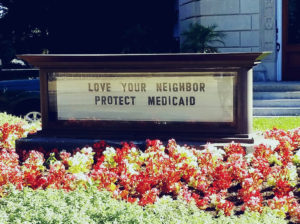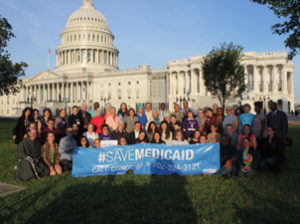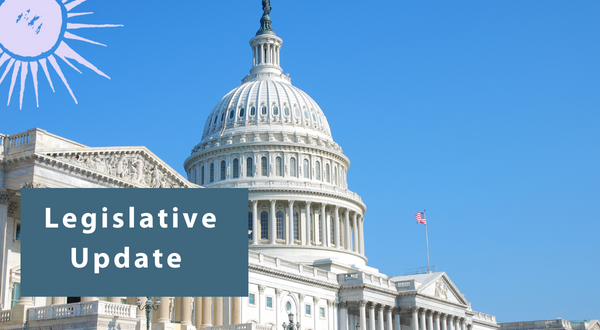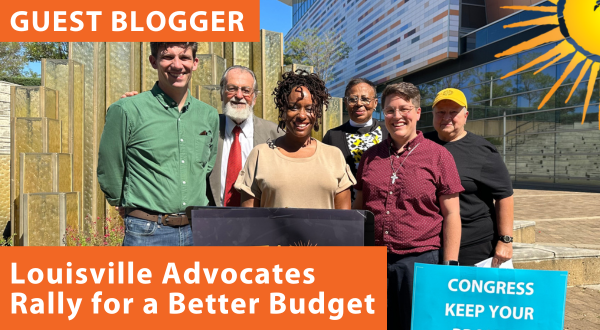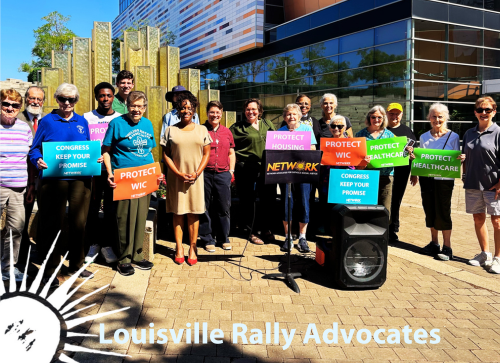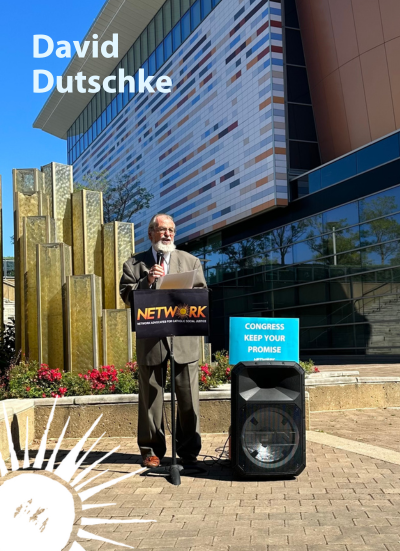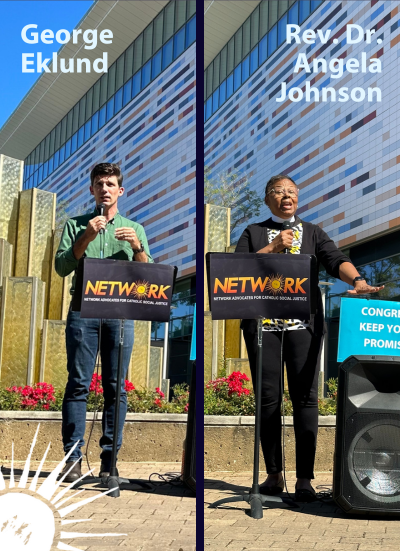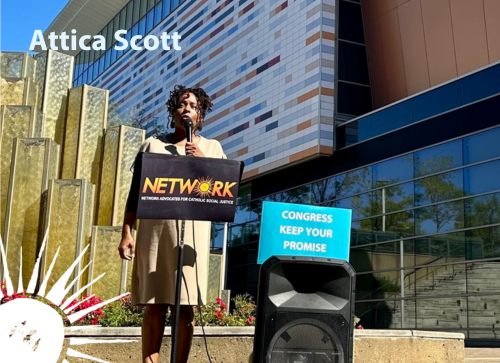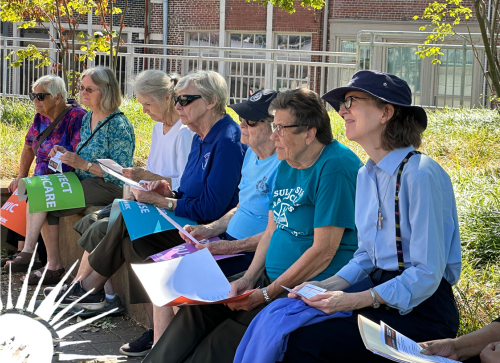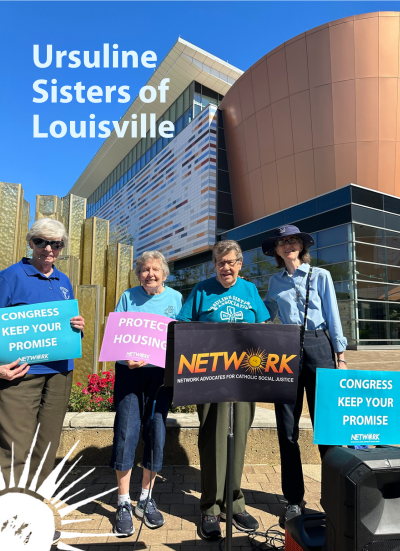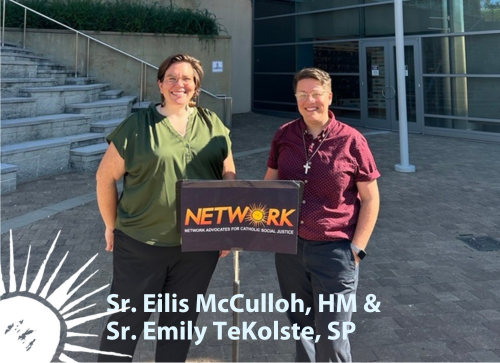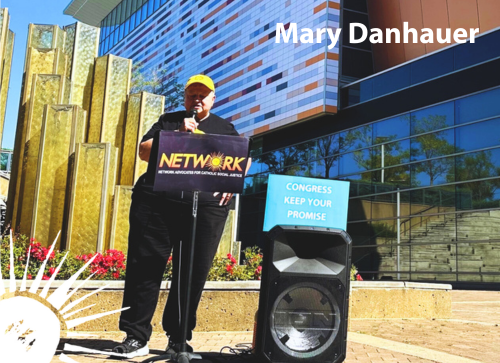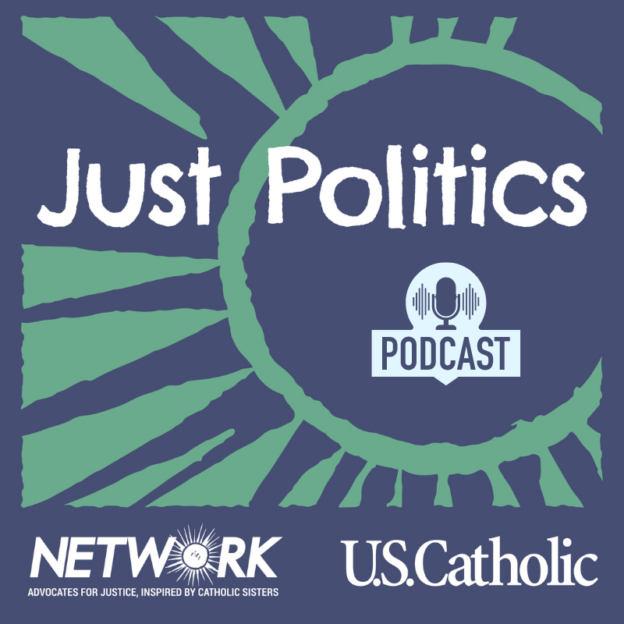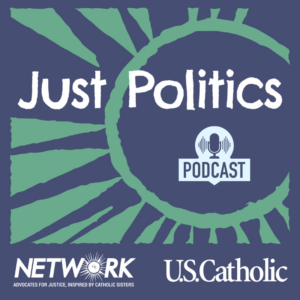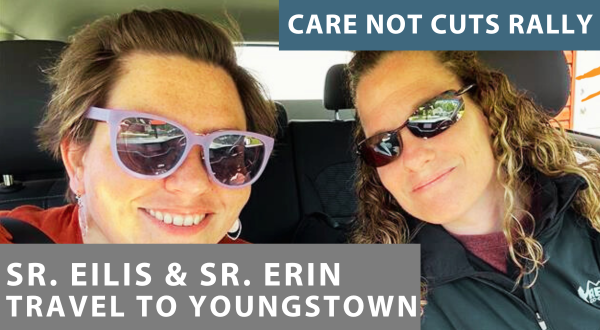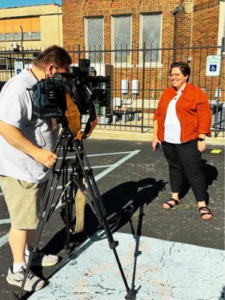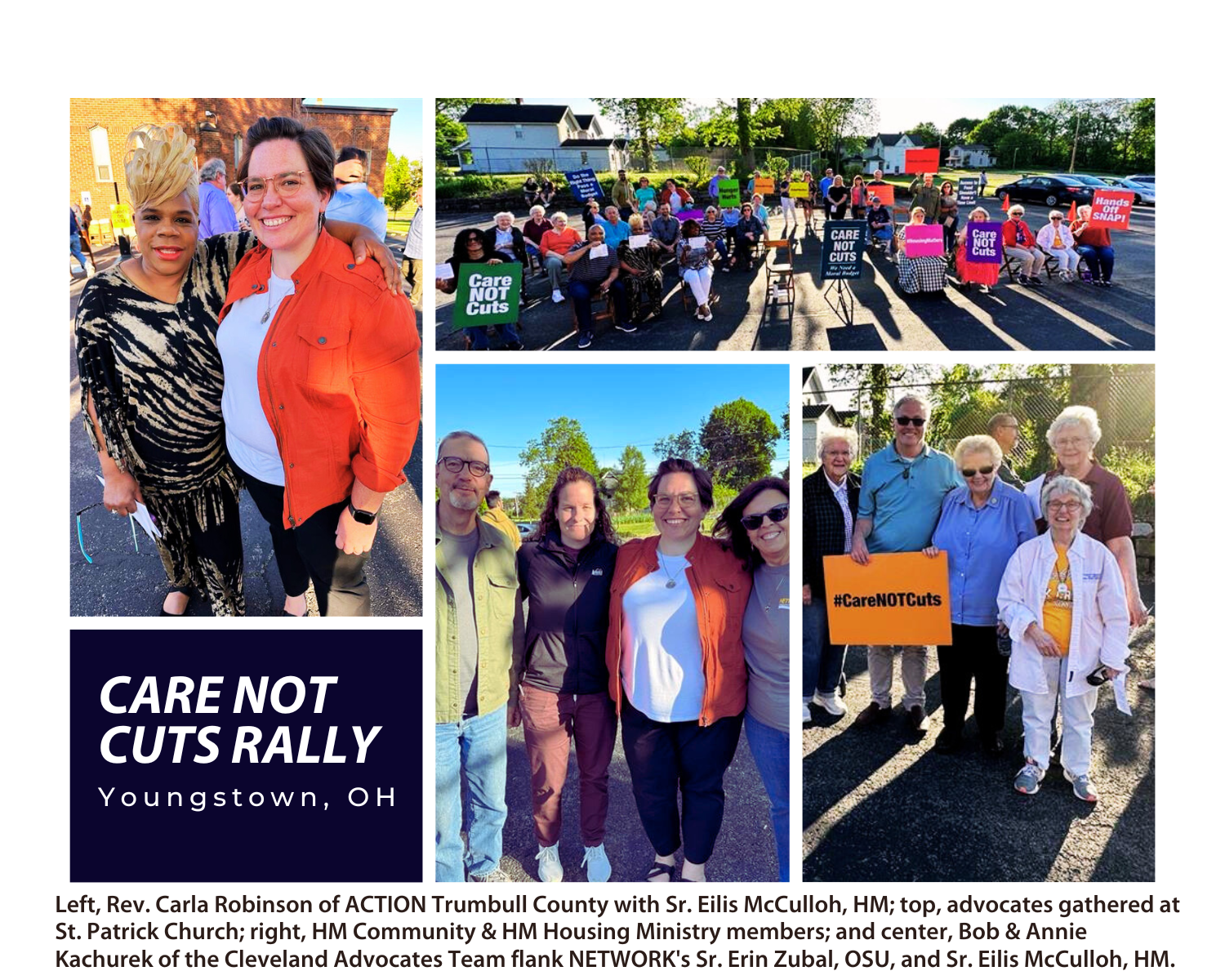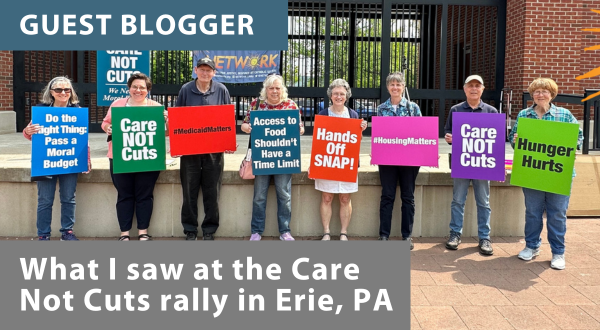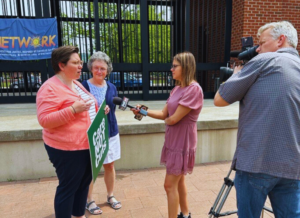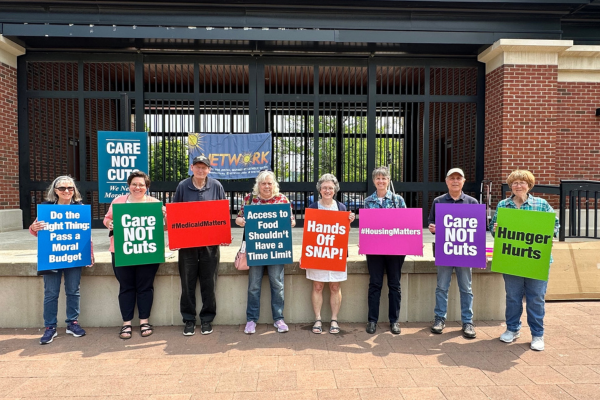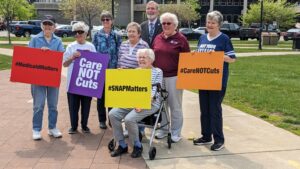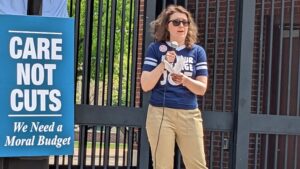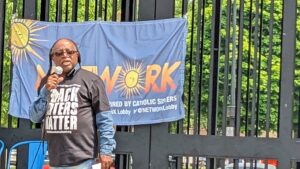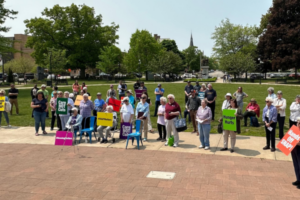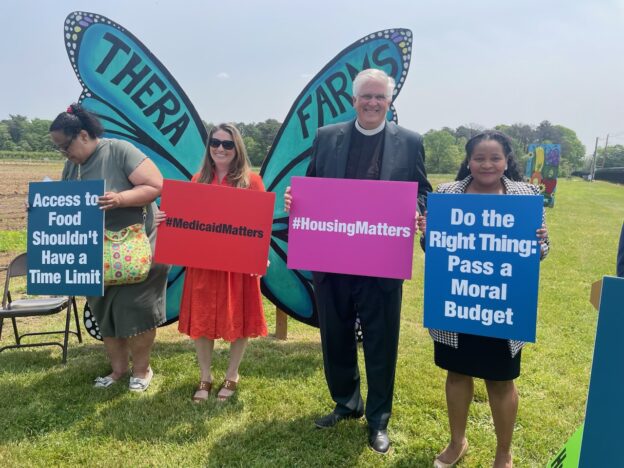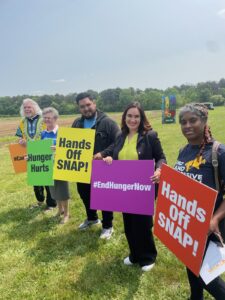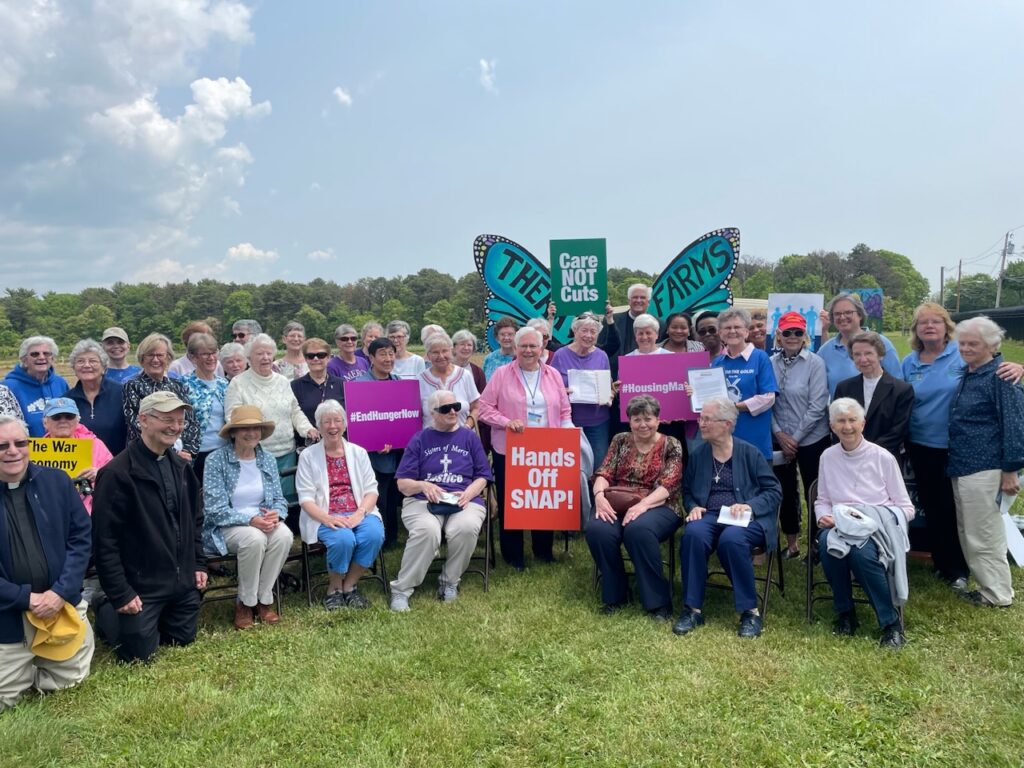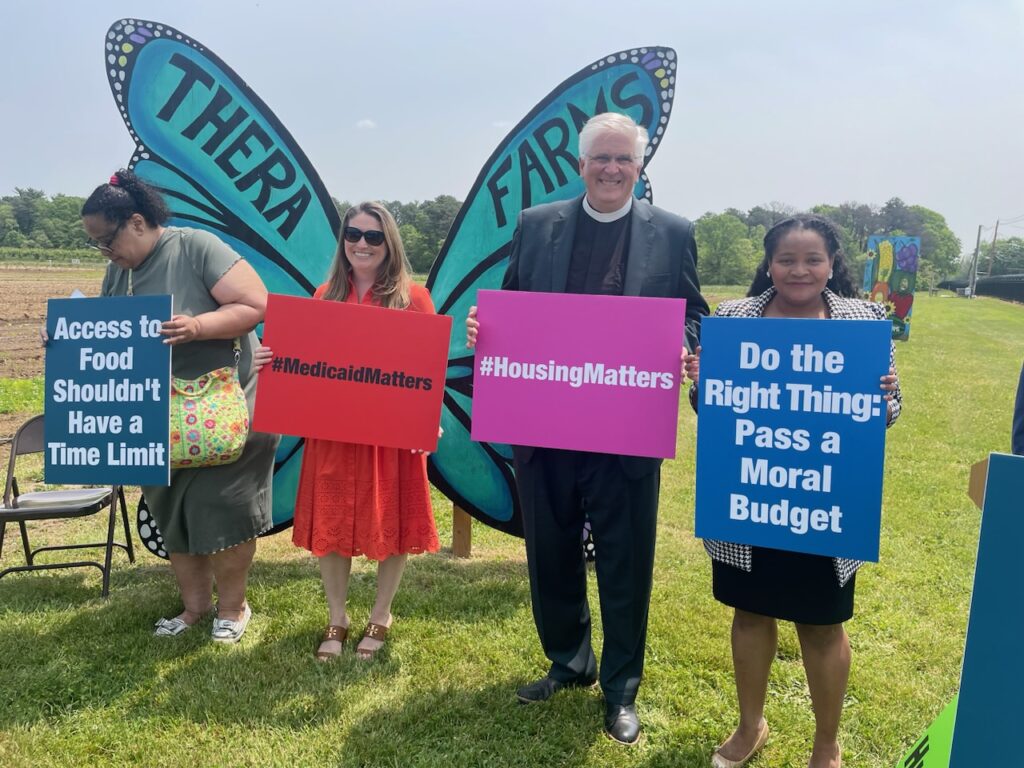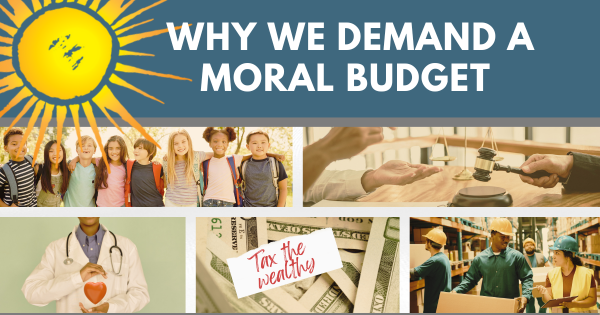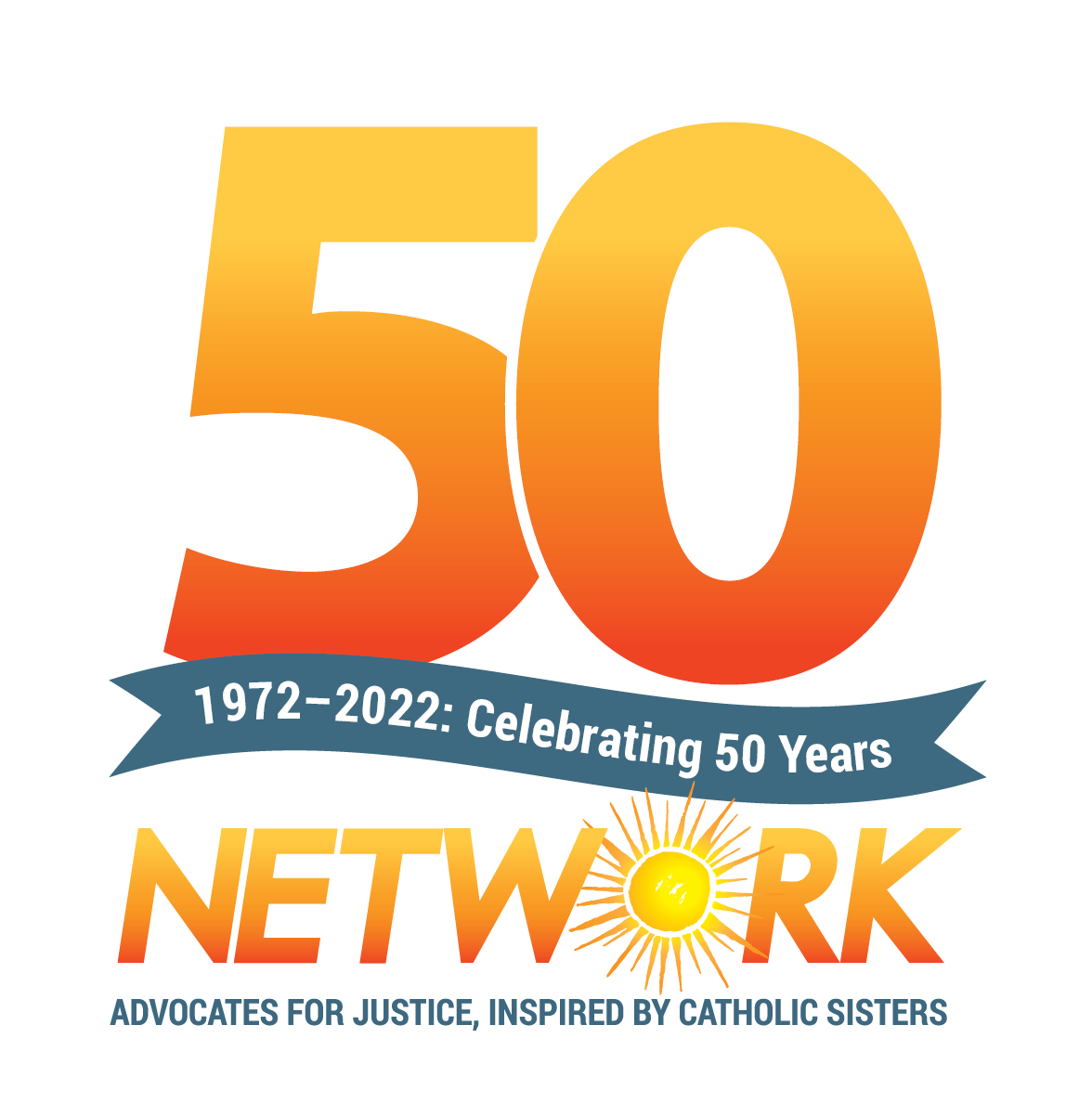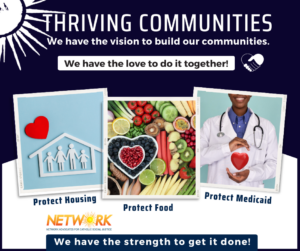This Advent, Remember the Promises
Mary J. Novak
December 20, 2023
Read NETWORK’s Advent 2023 reflections here!
Readings for the Fourth Sunday of Advent, December 24.
2 Sm 7:1-5, 8b-12, 14a, 16
Ps 89:2-3, 4-5, 27, 29
Rom 16:25-27
Lk 1:26-28
The Readings for the Fourth Sunday of Advent speak beautifully of God’s promises. Time and again, God delivers great things, and people rejoice at these wonders. God is good, and God is faithful.
This year, NETWORK had experience with keeping promises and remaining faithful.
Too often, this has taken the form of making sure Congress did not slash funding to vital human needs programs including SNAP and WIC, even after promising not to in the deal averting a government shutdown.
A few but powerful extremist Members of Congress called for cuts that would have harmed millions of people in the U.S. by jeopardizing their access to food, housing, and healthcare. And worse, they proposed these cuts as part of their demands to avert a government shutdown. Shutting down the government would have harmed millions more across the U.S. and disproportionately harmed Black and Brown communities.
We lament the sin of indifference toward our neighbors and communities these cuts would harm. We also lament the dangerous brinkmanship that sees shutting down the government as an acceptable bargaining tool. This approach is corrosive to the very fabric of our democracy, and worse, those who engage in this practice seem to know it.
Amidst these trials, we also saw beautiful reminders of the faithfulness of God, in our own NETWORK Advocates. Justice-seekers from across the country gathered throughout this year as part of NETWORK’s Thriving Communities campaign to call on Congress to pass a moral budget. Rallies in Erie, Pennsylvania and Youngstown, Ohio, as well as on Long Island and Capitol Hill made the appeal for “Care Not Cuts.” You joined together and spoke out, and you continue to beautifully model your faithful commitment to the common good.
The ultimate fulfillment of God’s promise is Jesus, and the Gospel reading this Sunday finds the angel announcing to Mary that she would bear a son. Just as God’s faithfulness resulted in the creation of a family, the Holy Family, so the faithfulness of NETWORK Advocates has allowed countless families to flourish with the assistance they urgently need.
Call to Action
So far, the dedication of NETWORK Advocates has paid off in protecting vital human needs programming. But we must stay alert because the human needs programs we are called to care about are still very much at risk. Funding for the Supplemental Nutrition Program for Women, Infants, and Children (WIC) is not finalized till January.
TAKE ACTION: Tell Congress to keep their promise and fund this vital program.







